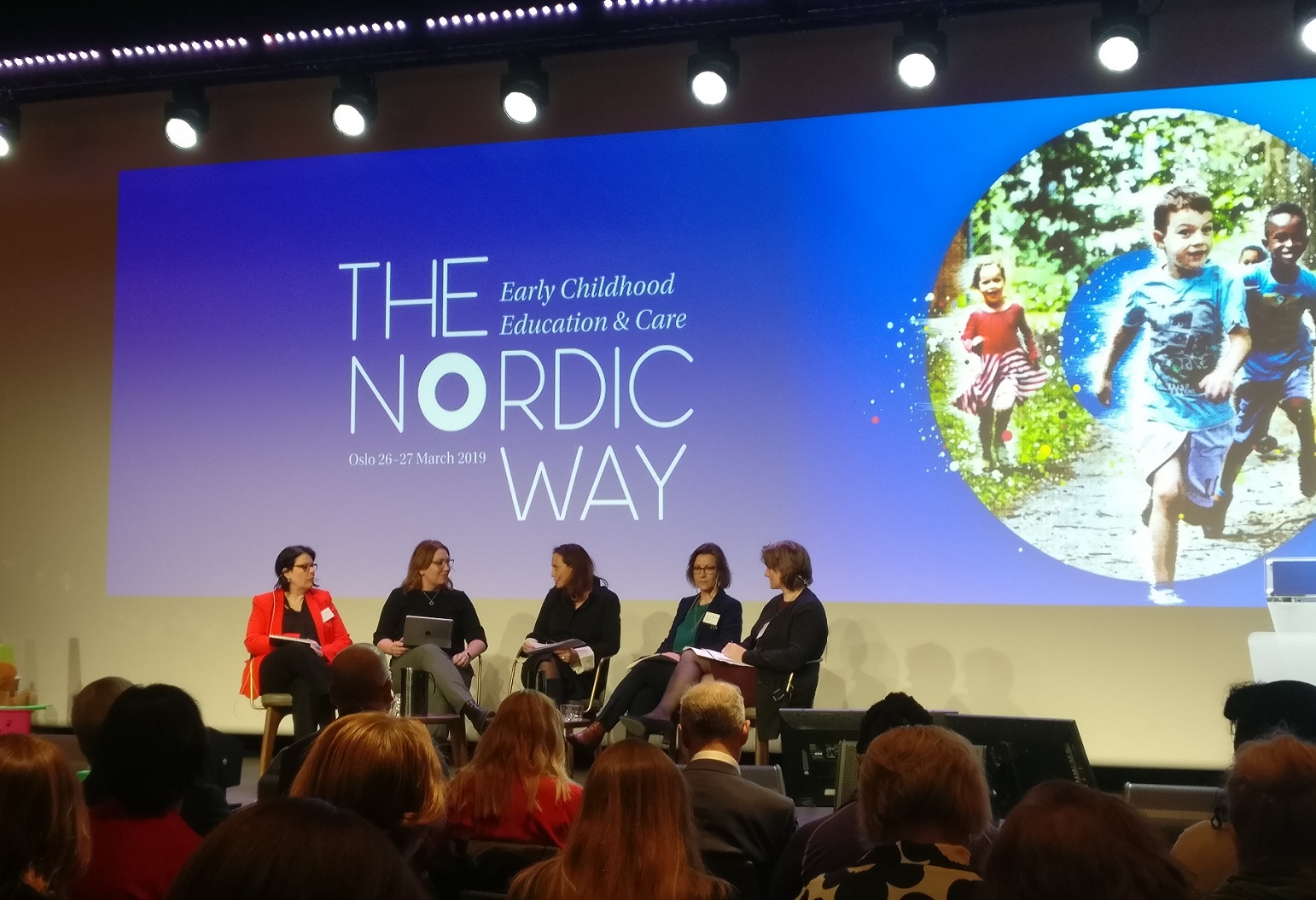Right to play and participation of children essential in quality early childhood education
Published:
A high-level conference entitled “The Nordic Way – Early Childhood Education & Care” was organised on 26-27 March, 2019 in Oslo in cooperation between the Ministry of Education of Norway and Norwegian trade unions, supported by the Nordic Council of Ministers. The participants were policy makers and teachers from 47 countries.
Jan Tore Sanner, the Minister of Education of Norway welcomed the participants and highlighted that in the Nordic countries kindergartens contribute to the success of several policy areas, for example concerning inclusiveness, integration, and language learning. Children should be participants and not observants of their life and they need to be given roots and wings. In order to achieve high quality ECE, research and continuous professional development of ECE teachers must support kindergarten education.
The children’s participation and experience add to the Nordic pedagogical tradition which is aligned around principles of holistic education, defending childhood and the right to play, said Steffen Handal, President of Union of Education Norway. He underlined that education, culture, values and society strongly link and quality of education is based on creativity and constant development. ECE is not to prepare children to school and play is a prerequisite of freedom of expression for the children and has a great emphasis in the Nordic kindergartens.
Free and quality ECE is an essential first step of education, said David Edwards, General Secretary of Education International in his speech. He underlined that ECE is a state responsibility and it should be accessible for all children but still 170 million children in the world are deprived from education and children of poor families are still excluded from ECE. Qualified teachers and education support personnel in ECE need support and further learning. He reminded that ETUCE policy paper on Early Childhood Education (2012) defines master level degree as a minimum level of education for ECE teachers, a demand which would raise their qualification to the same level as primary and secondary school teachers.
Susan Flocken, ETUCE director took part in a plenary discussion with the participation of the representatives of the European Commission and Lararforbundet, the Swedish trade Union of teachers. She underlined that the shortage of teachers, gender inequality in the ECE profession, low qualified ECE teachers, and increasing privatisation of the sector are the greatest challenges in Europe in the ECE sector. Decent working conditions, decent salary and work-like balance are contributors of quality to ECE. Professional autonomy of the teachers reflects the needs of children, but many external, mostly political pressures on teachers try to change this. She recalled the increasing privatisation in the sector and that public investment in education should be sustainable as education is a public good and a human right. Qualifications of ECE teachers at Masters levels and continuous professional development are crucial demands of the European education trade unions. She added, that ECE teachers should be better valued and should be prioritised in the European Commission’s initiative for the future, the European Education Area 2025.
More information about the conference here: https://ececthenordicway.no/program/conference-program/